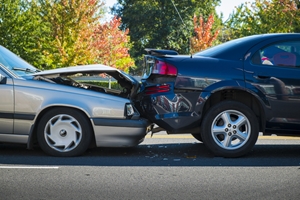 A woman who was awarded around $250,000 due to car accident injuries has appealed the amount of compensation she received for being inadequate.
A woman who was awarded around $250,000 due to car accident injuries has appealed the amount of compensation she received for being inadequate.
The plaintiff was involved in two crashes over a four-month period, with other drivers rear-ending her vehicle on both occasions. The woman, who was a passenger each time, suffered soft-tissue damage and developed anxiety and stress following the accidents.
According to court documents, the woman had previously enjoyed an active social life, including going dancing, fishing, walking and running, as well as attending rugby matches. She also did all the cleaning work in her household, which was kept in an “immaculate condition”.
After the accidents, the plaintiff alleged she was unable to do a number of these tasks anymore. In fact, she claimed she required 24-hour care. In the original trial, the primary judge awarded $75,000 for non-economic losses, $92,050 for past gratuitous care and $72,257 for future gratuitous care.
However, the judge limited the amount of damages awarded, as he felt the plaintiff was an unreliable witness who he believed was exaggerating her symptoms to doctors. Her husband, the driver of the car in both accidents, also lacked credibility when giving evidence.
Car accident injury appeal
The woman appealed the decision, claiming the original judge erred in his ruling. She also refuted the allegation that she exaggerated her condition when visiting medical practitioners.
Her appeal led the two drivers of the other cars involved in the accidents to launch cross-appeals. In the first hearing, they had been forced to pay damages equally, however, they argued this should not have been the case.
The appellate judges rejected the woman’s appeal, but admitted there was merit to the cross-appeals. There was also an issue of whether the plaintiff should have received money for gratuitous care in the original trial.
The Motor Accidents Compensation Act requires a threshold of six hours of weekly care to be reached. While the woman was ruled to require seven hours of care each week, the original ruling split liability for the two accidents down the middle.
As such, she was technically deemed to only need 3.5 hours of care per accident, which was below the necessary threshold. The woman therefore had her own appeal rejected, but may also see her previous damages lowered to account for the discrepancies in the original ruling.
Cases such as this show the importance of receiving the best legal advice when pursuing compensation, so as not to jeopardise the amount of money received after a favourable ruling.

